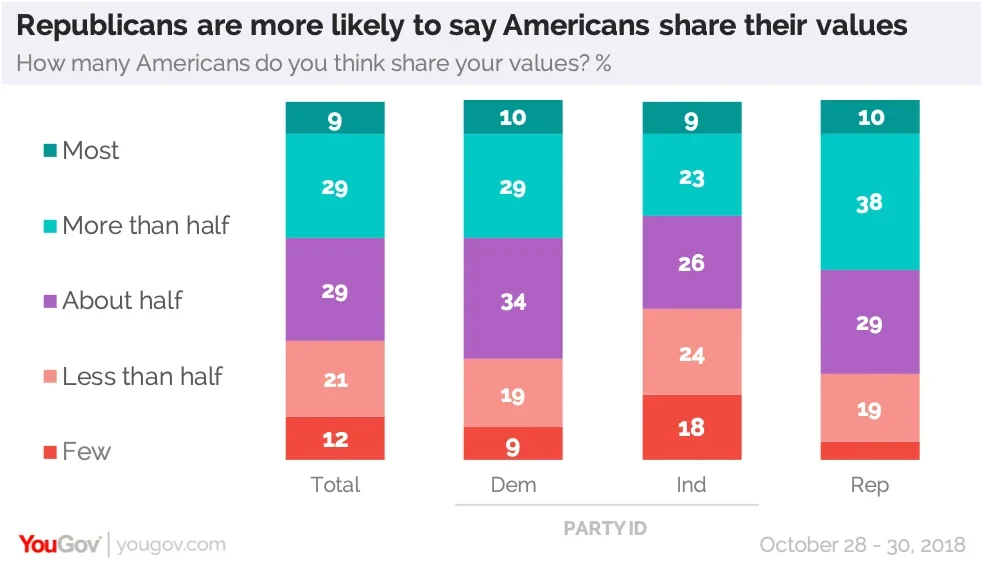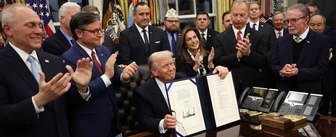Most Americans say hate crimes are more common now than a decade ago
In the wake of the Sabbath murders of eleven worshippers at the Tree of Life Synagogue in Pittsburgh, Americans are twice as likely as they were two weeks ago to regard anti-Semitism as a very serious problem in the United States, according to the latest Economist/YouGov Poll.
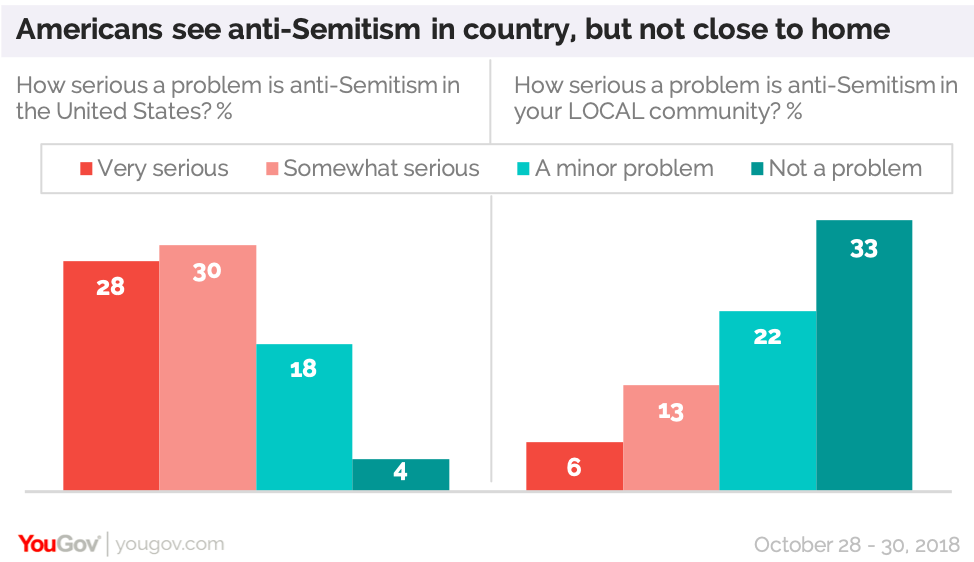
But for many the problem is elsewhere, and not where they live. Only 6% regard anti-Semitism as a very serious problem in their own communities.
Most Americans see is discrimination against Jews, although significant numbers also find discrimination against Christians. One in four say there is a great deal of discrimination against Jews, with more than two-thirds believing there is at least a fair amount of discrimination. But perception of discrimination is in part based on one’s one personal beliefs, and many see themselves as being victims. Half of white Protestants say there is a fair amount or a great deal of discrimination against Christians, and twice as many white Protestants think today in the United States non-Christians have it easier than Christians do. However, even more white Protestants see discrimination against Jews.
Most Americans see a rise in the number of hate crimes in the last decade – the shooter in Pittsburgh has been charged with two counts of hate crimes in addition to murder charges, and was heard making anti-Semitic statements while shooting. More than a third say the number is “much higher.”
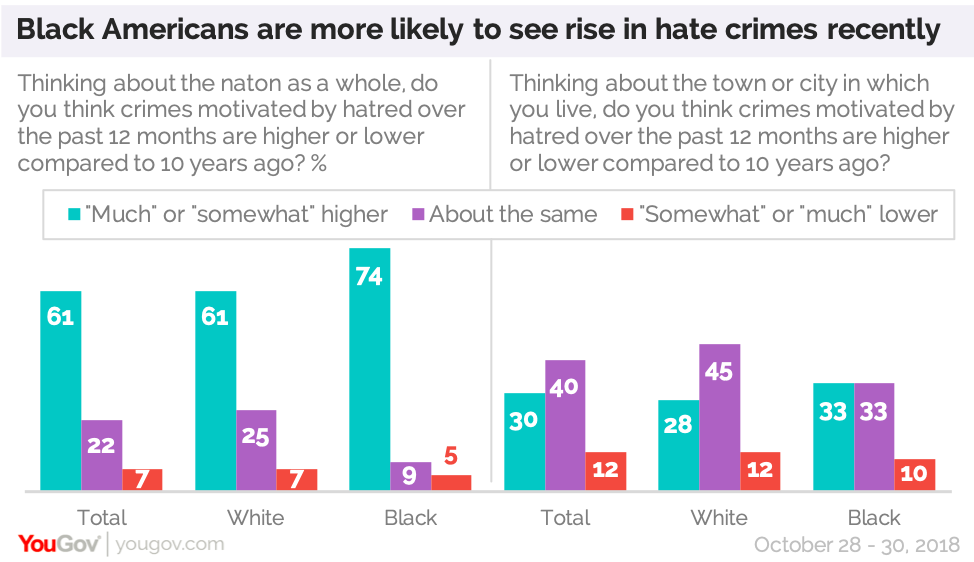
African-Americans are even more likely to report a rise in hate crimes, so are those 65 and older.
But like the increase in the perception of anti-Semitism, this is a national and not a local problem. Far fewer think this is happening in their own communities.
Only one in three Americans report they personally ever have felt threatened because of their race, religion, gender or sexuality. But one in three African-Americans say they have been targeted because of their race. So have one in four who identify as neither white nor black (most of these are Asian or of mixed race). Almost one in five Hispanics report a personal threat because of their ethnicity. 44% of gays, lesbians, and bisexuals say they have felt personally threatened because of their sexuality.
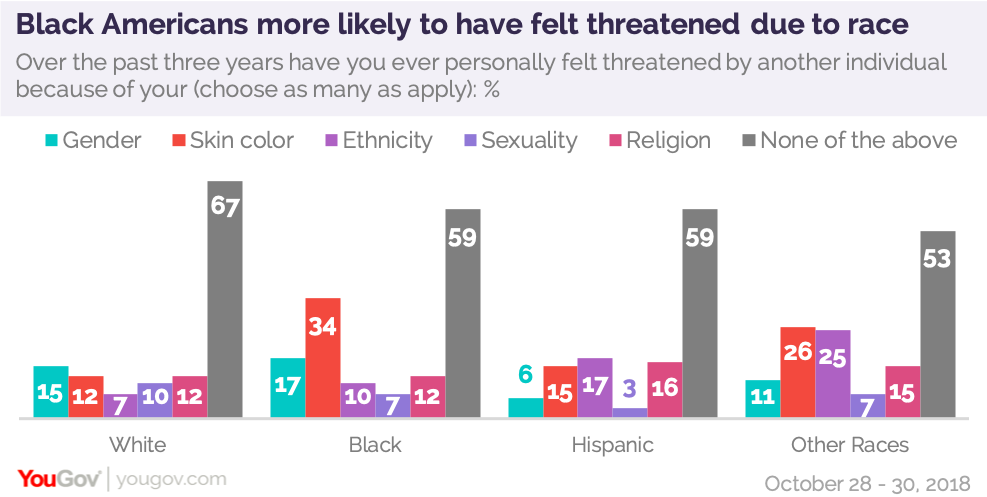
Americans reject threatening violence against or verbally accosting political opponents: just 5% say threats of violence are appropriate, and only 12% say it’s okay to heckle opponents at public places like restaurants. Democrats seem more willing to accept verbal attacks, and many recent incidents of heckling have been directed at members of the Trump Administration. 19% of Democrats say verbal heckling is appropriate, while only 5% of Republicans agree.
The public blames many things for recent violent actions, among them the tone of political discourse among politicians and the media. Three in four say this tone played an important role (Democrats are more likely to say the tone of discourse was “very important;” Republicans more likely to say it is “somewhat important”). Blame for this state is extended in this poll to politicians of both parties, as well as to media of all sorts (both mainstream and those on the extremes).
For many, this direction from politicians and the media could matter: only one in three believe that most Americans “think for themselves.”
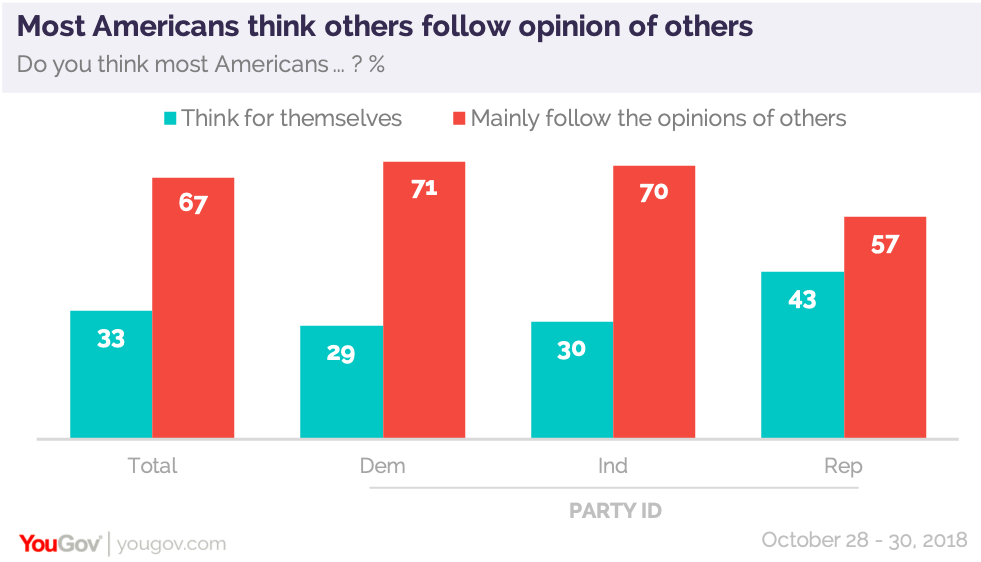
Republicans are more likely to say most Americans think for themselves. But they are just as likely as Democrats to castigate members of the opposing party. Only a third of those who identify with either party believe members of the other party share values with them, and only disagree on politics.
For many, it’s a case of “us” against most of the rest of the country, not just those in the other party. Barely a third of the public think a majority of adults overall shares their values. Republicans, perhaps because their party currently controls the Presidency and the Congress (and now have a clear conservative majority on the Supreme Court) are more likely than Democrats to think the country overall agrees with them.
